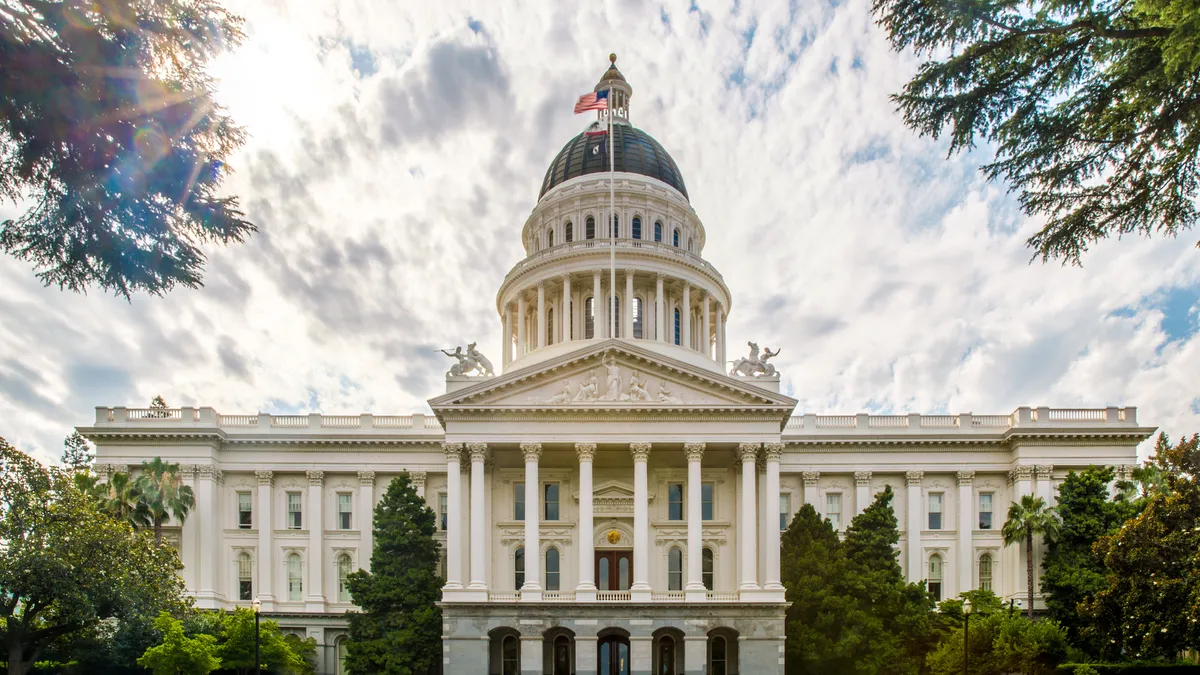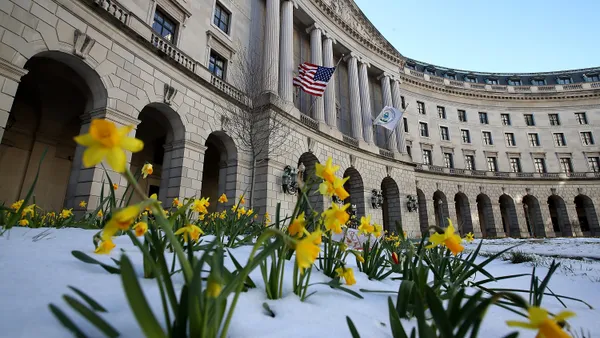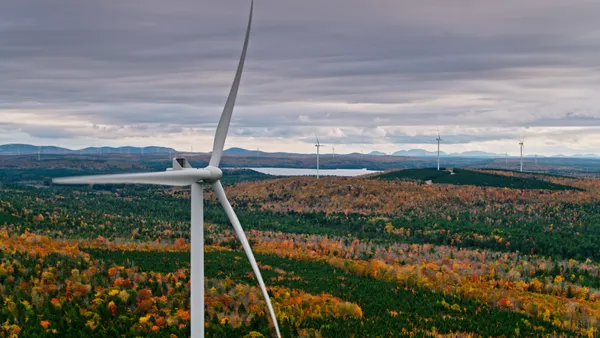Dive Brief:
-
California Gov. Jerry Brown (D) and Senate President pro Tempore Kevin de León (D) on Monday announced a pair bills aimed at combating climate change.
-
AB 398 would extend the state greenhouse gas cap-and-trade program to 2030 and aims to address legal problems with the existing program. AB 617 aims to improve air quality in certain communities by increasing monitoring and imposing stricter penalties on polluters.
-
Lawmakers had aimed for a Thursday vote on the cap-and-trade bill, but on Wednesday announced they would delay that until Monday, July 17
Dive Insight:
California’s cap and trade program has been under assault from business groups who view it as an illegal tax. The program is part of a law that was passed without the supermajority required in both houses to pass a tax bill in California.
The state Supreme Court has upheld the program, but AB 398 aims to address the underlying problem by including measures designed to attract the two-thirds majority required for a tax bill.
The bill includes the repeal of a fire prevention fee that mostly affects rural landowners and is not popular with Republicans. It would also create new tax exemptions for a number of industries, including a $90 million annual tax break for power companies, the Sacramento Bee notes.
In addition to extending the cap and trade program to 2030, from 2020, AB 398 would put the California Air Resources Board (CARB) in charge of the cap and trade program and give it authority to set carbon price caps.
The bill would reduce the use of out-of-state carbon offsets and decrease free carbon allowances by over 40%, but would give some industries more allowances than they now have. And the bill would set new priorities for spending cap-and-trade revenues, directing some of those funds toward reducing diesel emissions in heavily affected communities.
Some environmental groups oppose the bill, arguing compromises with the oil industry aimed at garnering a two-thirds majority limit the effectiveness of the program in reducing emissions. Food and Water Watch called the bill "a massive giveaway of billions of dollars to the oil and gas industry that fails to rein in one of the largest sources of greenhouse gas emissions in California.”
Supporters say the compromises are necessary and that the revised program will be superior to the current cap-and-trade system, hampered in recent years by low auction prices as emissions fell faster than expected.
Due to provisions reducing the cap on emissions and increasing the carbon allocation price floor over time, analysis firm Energy Innovation forecasts that "future auctions for carbon allowances will sell out completely (or be ‘fully subscribed,’ in market terminology) at least through 2020."
That, analyst Chris Busch wrote in Forbes, would generate $26 billion in revenue from 2021 to 2030, with 35% of it directed at low-income community programs.
The companion bill, AB 617, would require CARB to develop a uniform statewide system of annual reporting of emissions of criteria air pollutants and toxic air contaminants for certain stationary sources, and would require those stationary sources to report their annual emissions levels.
Brown and de Leon originally aimed to push the bills through this week, but on Wednesday announced they would delay consideration until Monday to "allow our discussion on long-term housing affordability solutions in California to catch up to the climate effort."
Brown on Tuesday told the Sacramento Bee that he is unsure whether the cap-and-trade bill has enough votes to clear the two-thirds threshold. The paper reports a Senate environment committee will take up the bill on Thursday and the appropriations committee will review it on Monday.
Correction: A previous version of this article incorrectly said provisions reducing the cap on emissions and raising the carbon allocation floor price would generate $26 billion in revenue through 2020.













